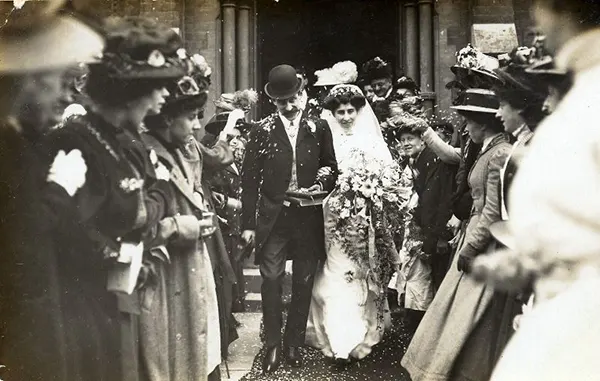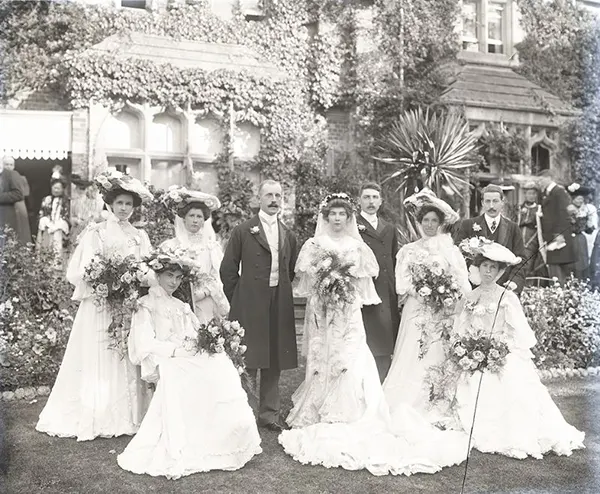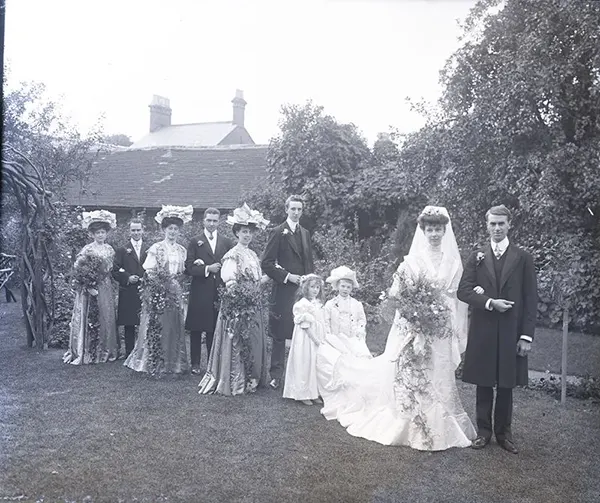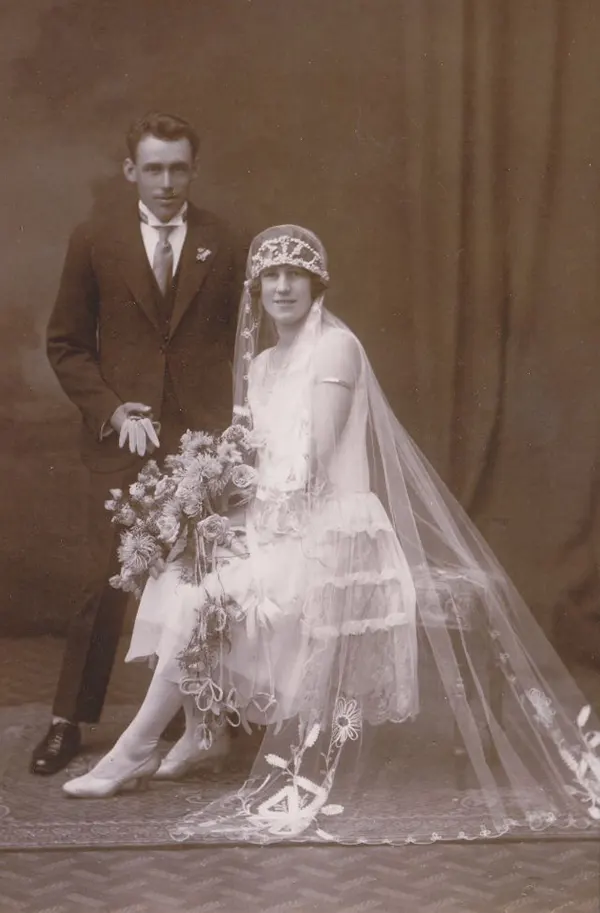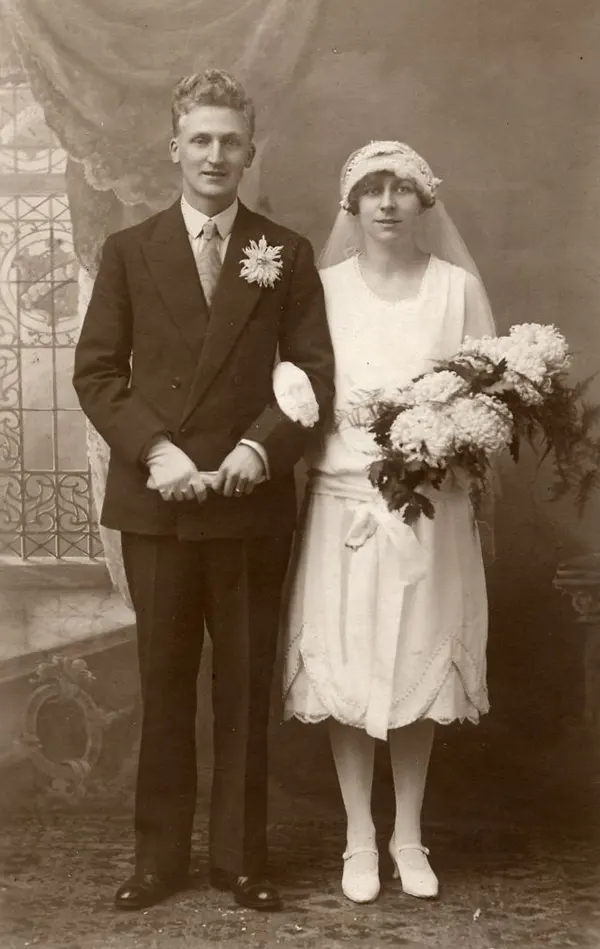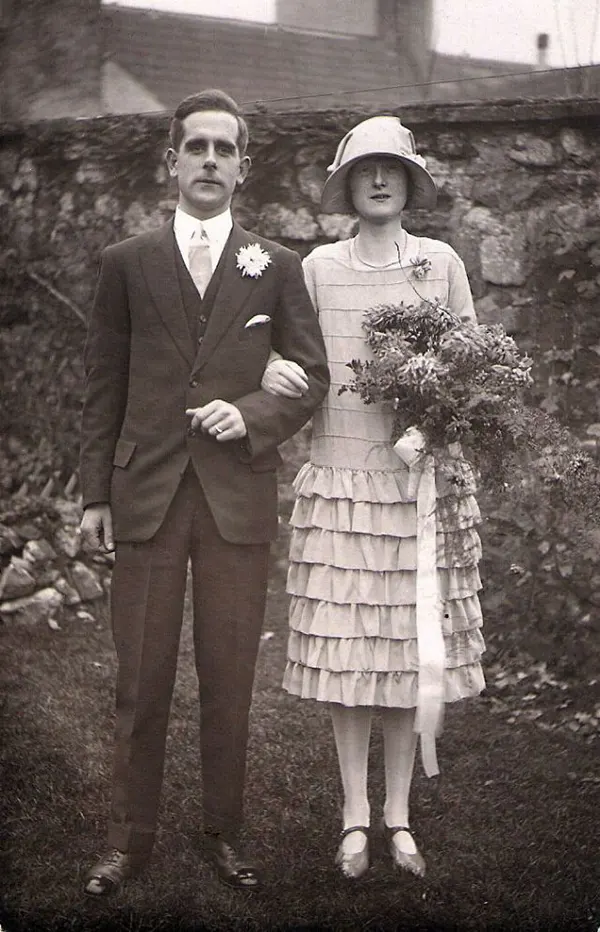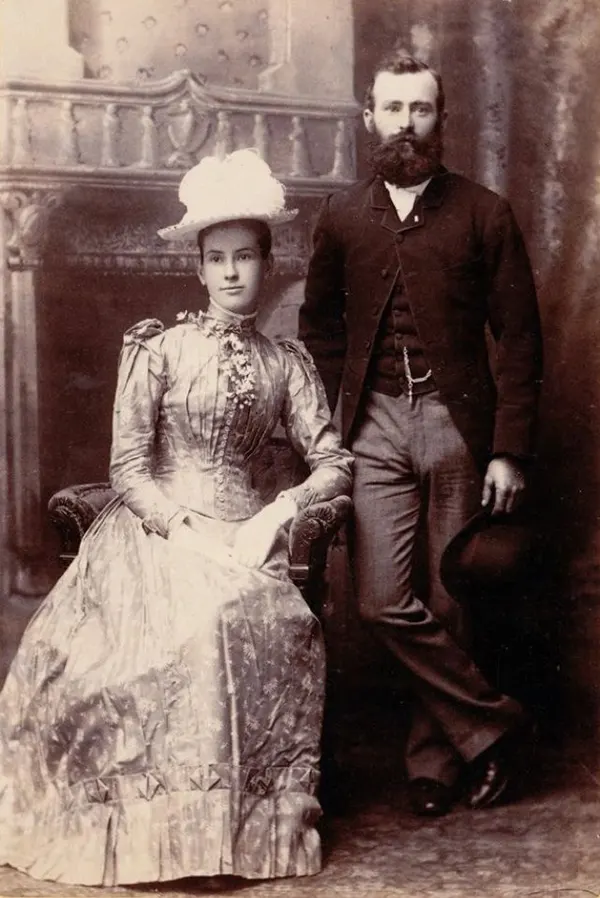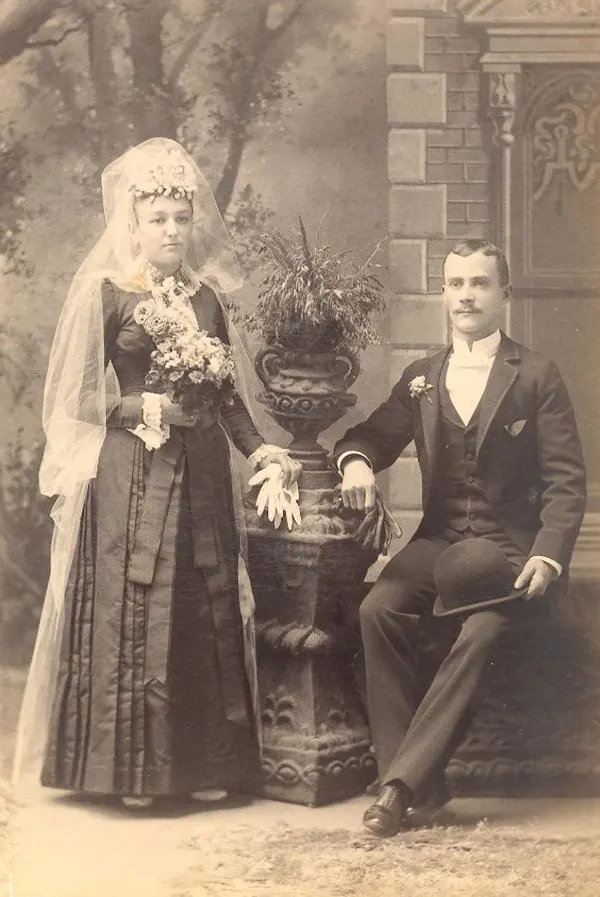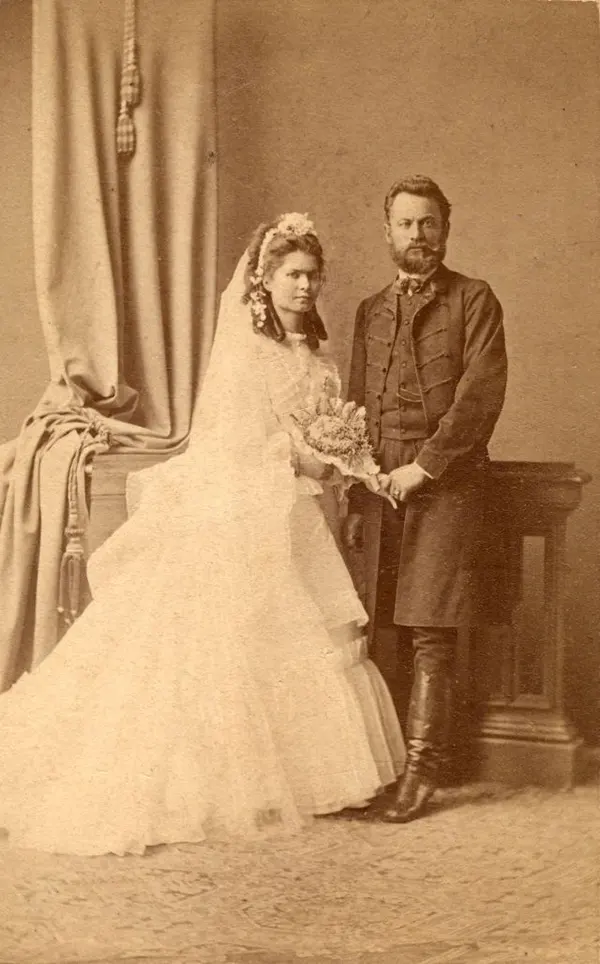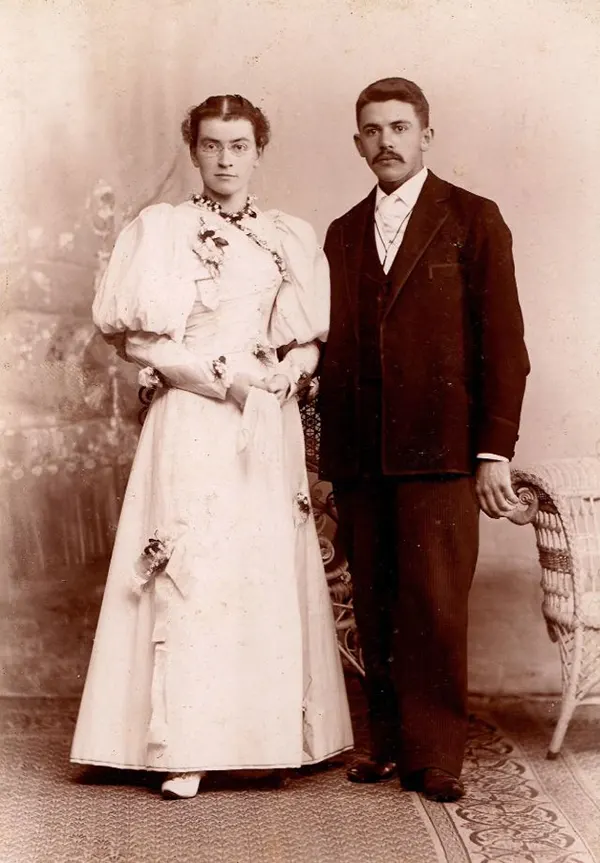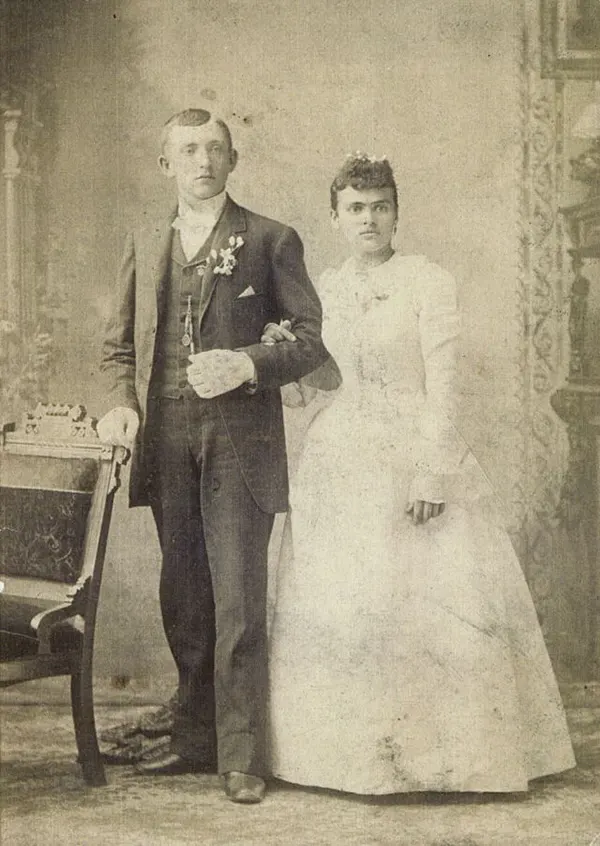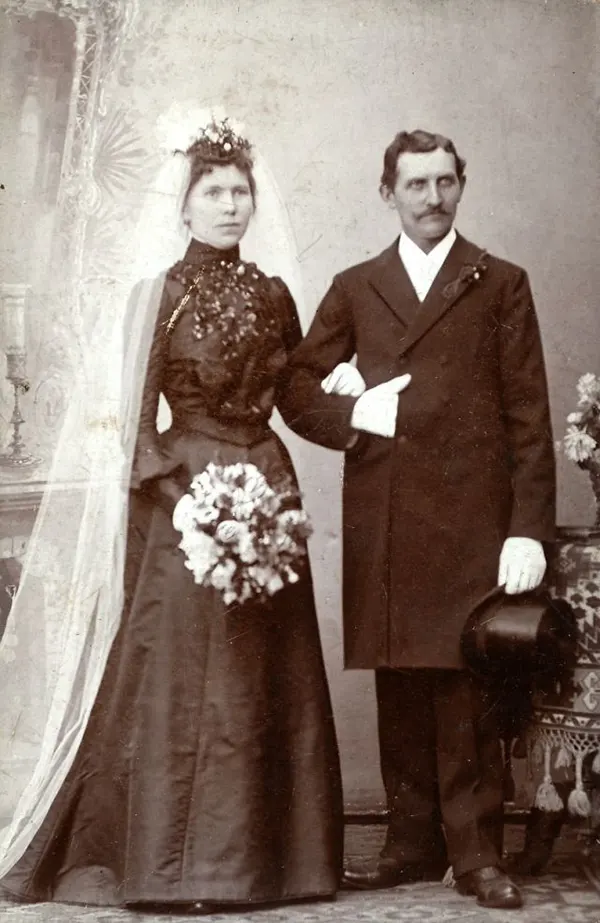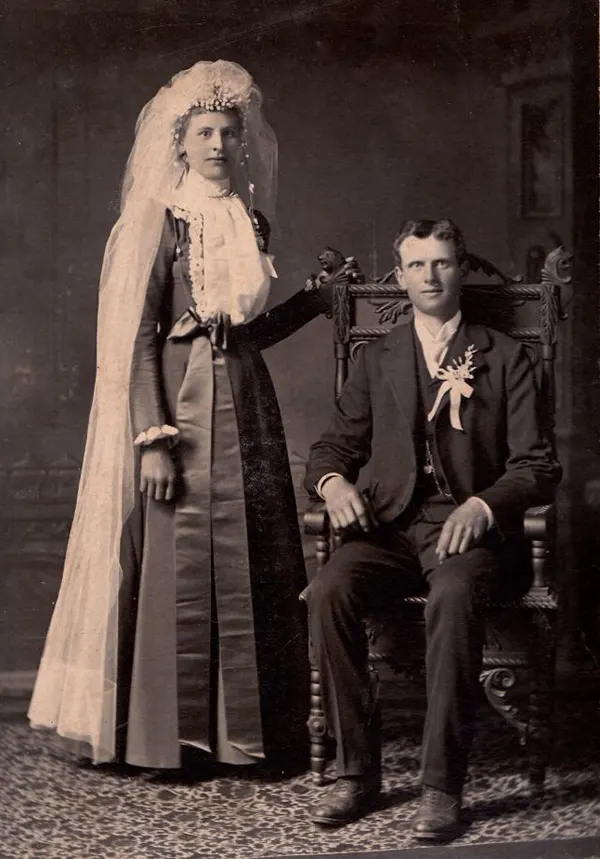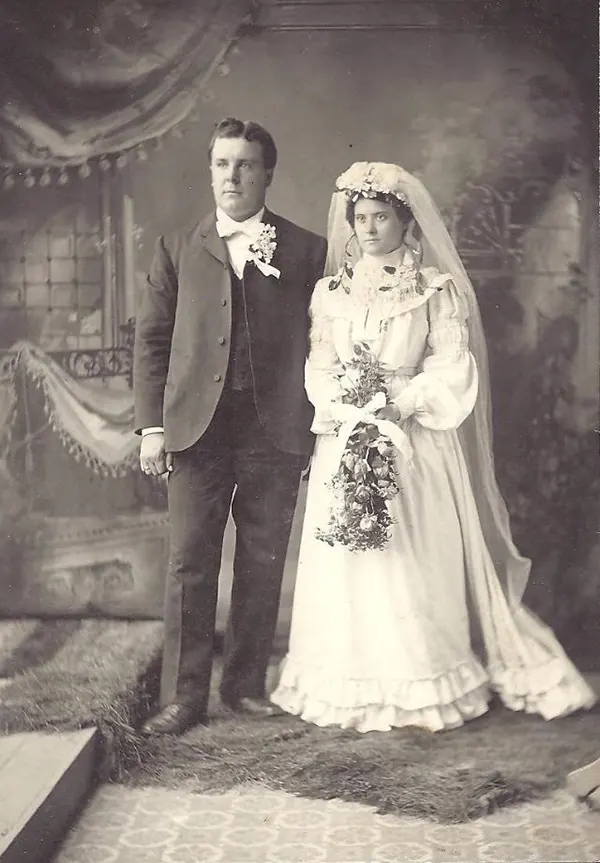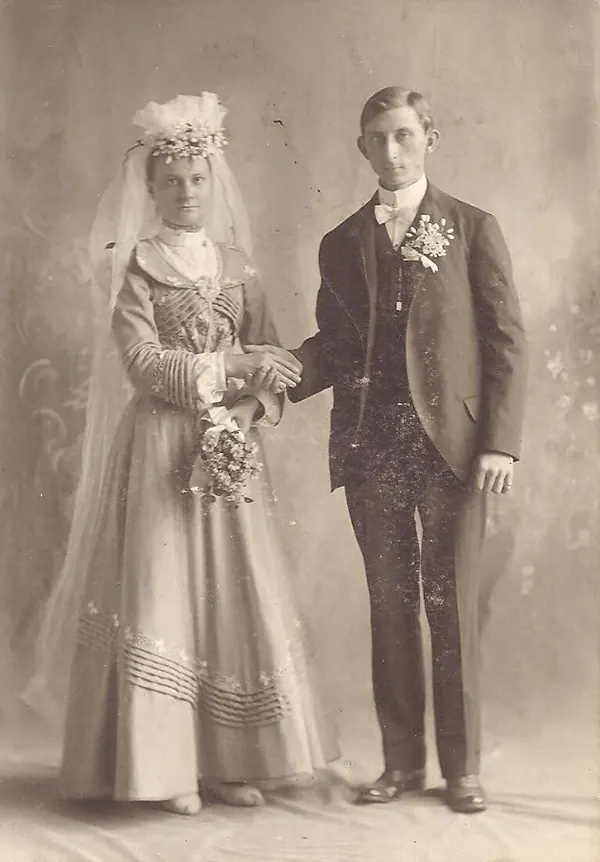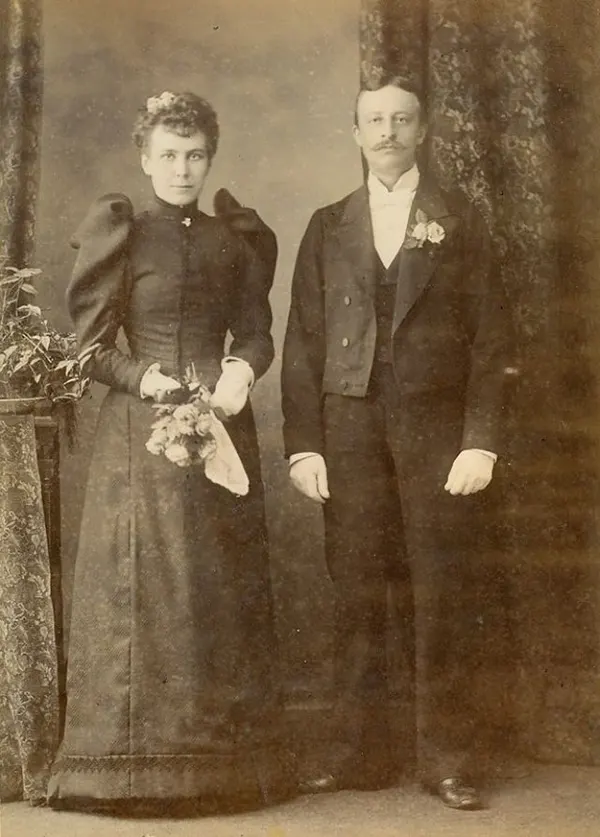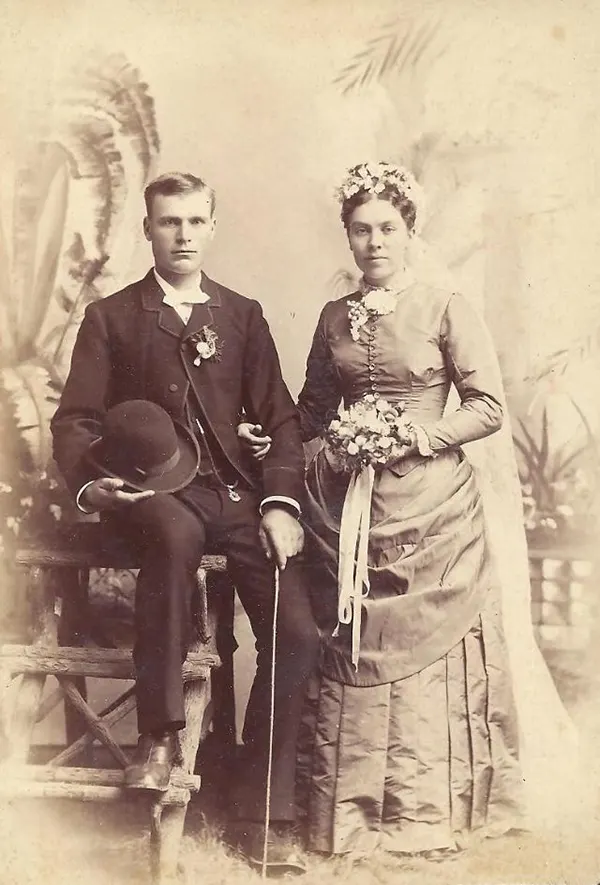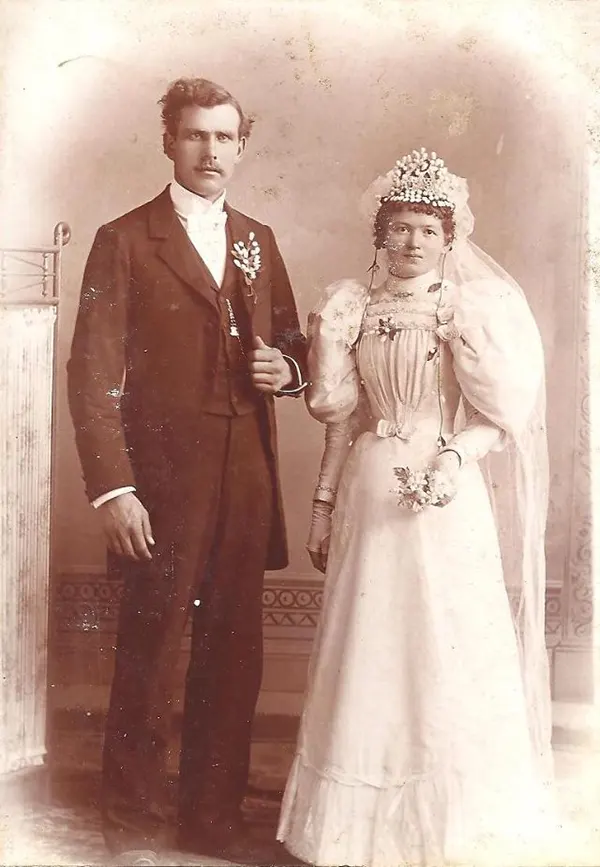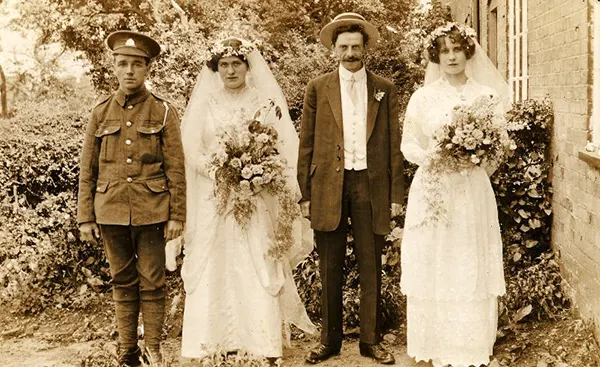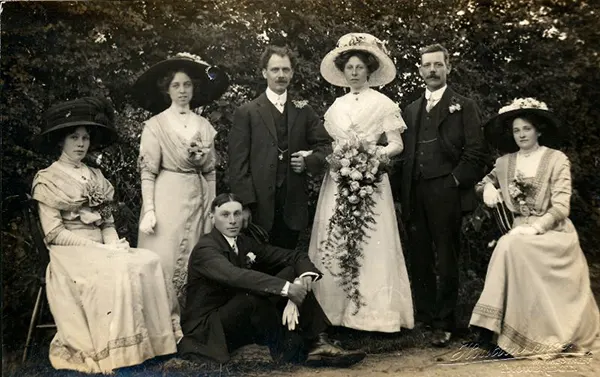Each image becomes a window into an era defined by elegance, tradition, and evolving customs, painting a vivid portrait of the matrimonial celebrations that graced the bygone years. Brides commonly opted for long-sleeved gowns made from luxurious fabrics such as satin or silk. These dresses, often embellished with lace and intricate beadwork, exuded grace and modesty. Veils were a significant symbol, veiling the bride as a representation of her purity. Grooms, on the other hand, favored formal morning suits or tuxedos, completing their ensemble with top hats or bowler hats, conveying a sense of refinement and sophistication. Guest attire mirrored the formal tone of the event. Women typically wore tea-length dresses, often paired with gloves, while men adhered to formal suits or tails. The ceremony itself was steeped in tradition, usually taking place in a church or an elaborate venue, with religious customs forming an integral part of the proceedings. Beyond the ceremony, the reception was a grand affair. Lavish feasts and ornate decorations adorned venues, showing opulence and prosperity. The wedding cake, often tiered and intricately decorated with icing, symbolized good fortune and fertility for the newlyweds. During the ceremony, it is customary to include bridesmaids and groomsmen in the event. The members of the bridal party are chosen to share the happiness with the couple getting married. Including bridesmaids in the ceremony originated as a technique of confusing evil spirits as to who the actual bride was. Groomsmen originated not for protection, but many centuries ago when men had to capture women in order to marry them. In order to steal the woman they chose to marry, men needed to pick the most capable man to help him, hence the “best man”. Today, “giving the bride away” has a very different meaning. The bride’s father accompanies her on her walk down the aisle to show approval of the groom. Centuries ago, fathers actually did give their daughters away to their future husbands, since daughters were the property of their fathers. Many brides today choose to wear white bridal dresses at their weddings. However, brides before the 19th century just wore the best dress they owned. It wasn’t until the 1840s, when Queen Victoria (who was monarch of Canada at the time) popularized white bridal dresses by choosing to wear white instead of the traditional royal silver dress. The tradition of the groom carrying his new wife across the threshold has many different interpretations. The act today symbolizes luck and the bride giving the groom her virginity. Similarly in older generations, brides had to appear unwilling to give in to their new husband. The husband would pretend to force his new wife into giving in to him by carrying her over the threshold. In the days when men captured their wives and actually did force women to marry them, she was also forced over the threshold because she was unwilling.
(Photo credit: Flickr / Pinterest / Wikimedia Commons). Notify me of new posts by email.
Δ Subscribe



